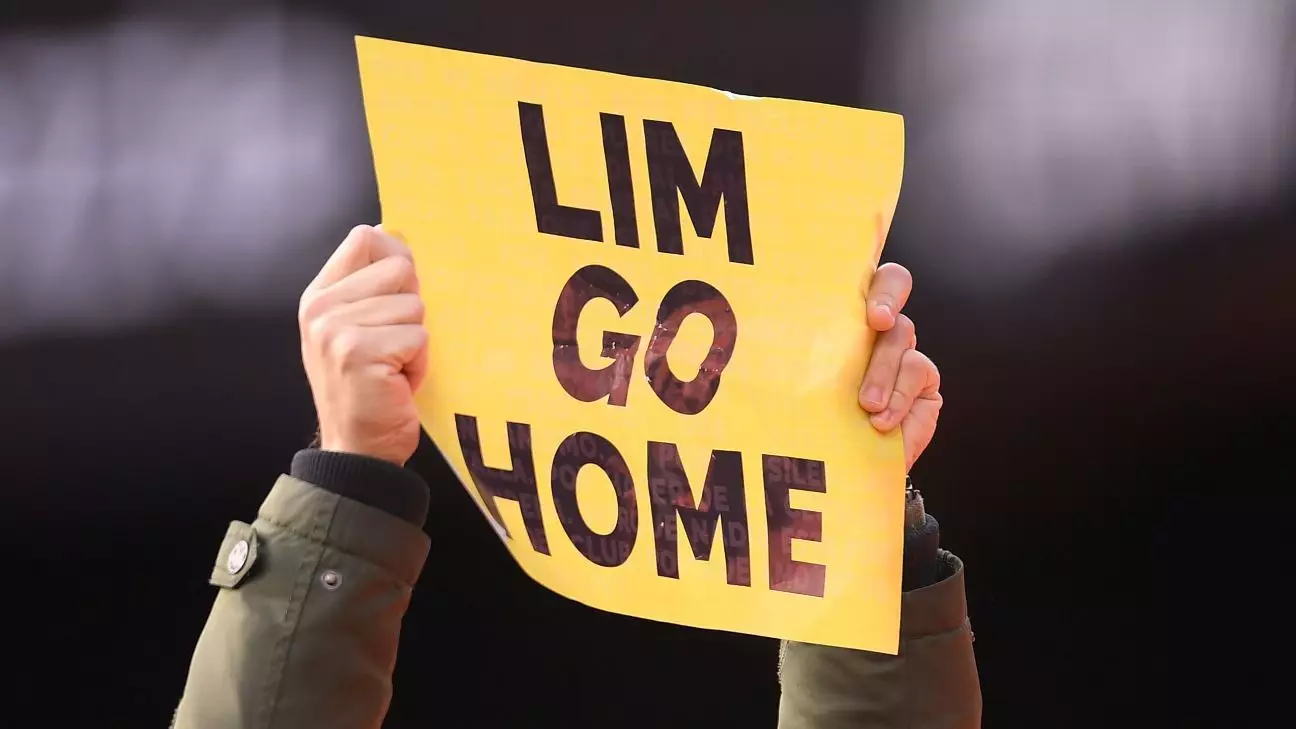The recent incident involving a Spanish couple protesting billionaire Peter Lim’s ownership of Valencia CF in Singapore has sparked discussions on the intersection of football, corporate governance, and civil liberties. Lim, who acquired the struggling club in 2014 through his investment company Meriton Holdings, has faced widespread discontent from Valencia’s fanbase, primarily due to high-profile player sales and frequent managerial changes that have left the team floundering near the bottom of LaLiga. As Valencia sits in the relegation zone with a mere six points from nine matches, the frustrations of fans have transformed into a public outcry, resulting in actions that have significant ramifications, particularly in a nation like Singapore, known for its stringent regulations on public assembly.
In Singapore, public assembly, including protests, is tightly regulated, necessitating an official permit. The couple, identified as Dani Cuesta and Mireia Sáez, became embroiled in a legal issue shortly after expressing their dissent. Arrested for participating in a “public assembly” without the necessary permissions, the couple has had their passports impounded by local authorities, drawing attention to the broader implications of civic action in an environment that does not tolerate spontaneous protests. The potential consequences for unauthorized demonstrations in Singapore can lead to fines upwards of $3,000, highlighting the risks associated with advocating for one’s beliefs in such a highly controlled setting.
Media coverage has been extensive, with numerous outlets, including the BBC, identifying the couple and providing details about their protest activities. Since protests against Lim’s management have become commonplace in Spain, it is not surprising that Cuesta took a stand while on their honeymoon. Their actions not only reflect their frustrations as fans of Valencia but also shed light on the cultural differences in freedom of expression between Spain and Singapore. As the couple’s family implores media discretion, it raises questions about how personal situations are presented and perceived in the public domain. The incident highlights the complexities surrounding privacy, especially in moments where individuals become symbols of broader socio-political issues.
As the situation unfolds, the role of Spain’s embassy in providing assistance becomes crucial, underscoring the diplomatic connections that exist even amid individual controversies. Valencia CF’s administration has expressed hopes for a swift resolution, revealing a desire to reconcile the discontent among fans and maintain some semblance of normalcy for the club. This incident serves as a reminder of how deeply intertwined sports, financial interests, and fan allegiance can become, culminating in a scenario that embraces the stark contrasts of public expression within distinct cultural and legal frameworks.
The protest staged by Cuesta and Sáez is a vivid illustration of the challenges faced by fans and their ability to voice dissent in varying global contexts. The tension surrounding ownership in football not only sits at the heart of club performance but also touches on fundamental human rights and the limits of expression in different parts of the world. As Valencia’s plight continues to play out on the pitch, the implications of this couple’s protest resonate far beyond their immediate situation, igniting an essential dialogue on sports, governance, and civil liberty.

